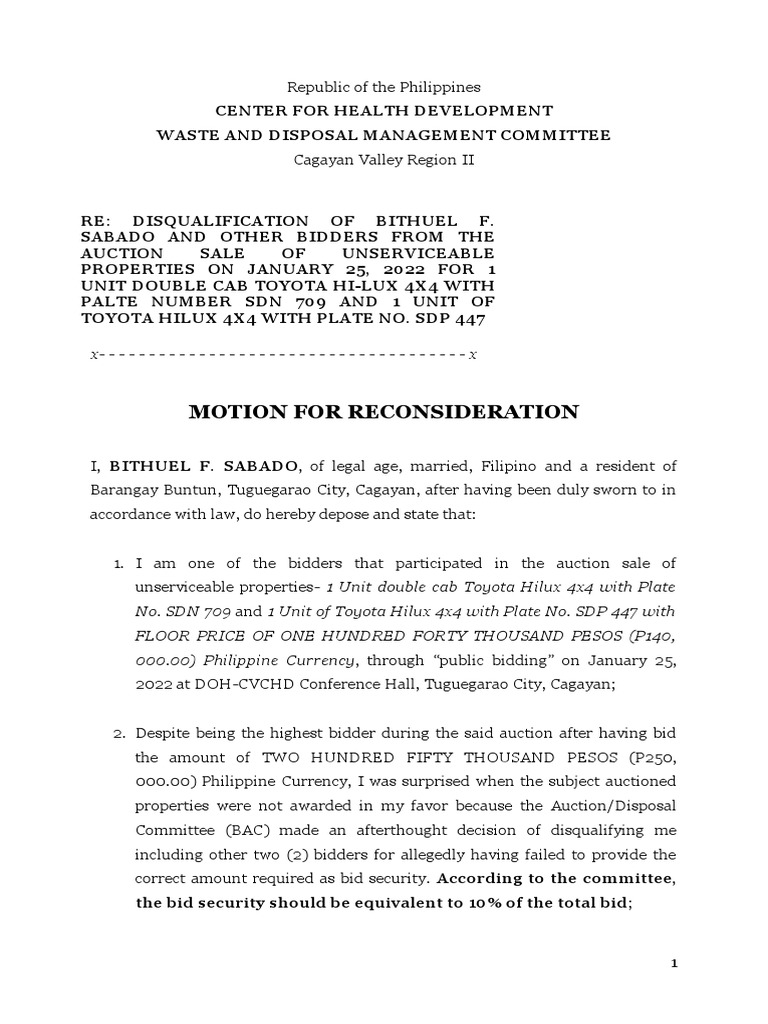OW Subsidy Reconsideration: Will It Revitalize Bidding In The Netherlands?

Table of Contents
The Current State of Bidding in the Netherlands
The Dutch energy market has seen a concerning trend in recent renewable energy auctions: low participation rates. Several factors contribute to this decline in bidding for renewable energy projects, hindering the nation's progress towards its ambitious renewable energy targets. These auctions, crucial for driving investment in renewables, are failing to attract the level of competition needed to ensure cost-effectiveness and efficient energy transition.
- Low number of bids received in recent auctions: Several recent bidding rounds for wind and solar projects have attracted significantly fewer bids than anticipated, raising red flags about the health of the Dutch renewable energy investment landscape.
- Reasons for low participation: The lackluster participation stems from a confluence of issues, including:
- Regulatory uncertainty: Changes in government policy and regulations create an unpredictable environment for investors, making it difficult to assess long-term project viability.
- Grid connection issues: Delays and complexities in securing grid connections significantly increase project development time and costs, deterring potential bidders.
- Financing difficulties: Securing financing for large-scale renewable energy projects can be challenging, particularly in a volatile energy market. This is further complicated by the perceived risks associated with regulatory uncertainties.
- Impact on the achievement of national renewable energy targets: The low participation rates directly threaten the Netherlands' ability to meet its ambitious renewable energy targets, potentially delaying the country's energy transition and impacting its climate commitments.
The Proposed Changes to the OW Subsidy
The Dutch government, recognizing the critical need to stimulate investment in renewable energy, has proposed significant changes to the OW Subsidy scheme. These adjustments aim to address some of the shortcomings of the previous system and incentivize greater participation in future bidding rounds. The rationale behind these changes is to create a more attractive and stable investment climate for renewable energy projects.
- Specific changes to subsidy amounts or eligibility criteria: The proposed reforms may include increased subsidy amounts for certain types of projects, particularly those facing higher development costs, like offshore wind farms. Eligibility criteria might also be broadened to encompass a wider range of renewable energy technologies.
- Streamlining of the application process: The government aims to simplify and accelerate the application process for the OW Subsidy, reducing administrative burdens and delays for developers. This will improve the overall efficiency of the subsidy scheme.
- Increased transparency in the subsidy allocation process: Greater transparency in the allocation process is crucial to build investor confidence and ensure fairness. Clearer guidelines and publicly available information on the selection criteria are anticipated.
- Potential impact on different types of renewable energy projects: The revised OW Subsidy may differentially impact various renewable energy technologies. For example, offshore wind, given its higher development costs, could receive more substantial support compared to onshore wind or solar projects.
Potential Impacts of the Reconsidered OW Subsidy on Bidding
The reconsidered OW Subsidy has the potential to significantly impact future bidding rounds in the Netherlands. While the changes aim to revitalize the market, it's crucial to consider both the potential benefits and risks.
- Increased investor interest and participation in future auctions: Higher subsidy amounts, streamlined processes, and increased transparency are expected to attract more bidders, leading to increased competition and potentially lower costs for renewable energy projects.
- Accelerated deployment of renewable energy projects: A more efficient and attractive subsidy scheme should accelerate the deployment of renewable energy infrastructure, helping the Netherlands achieve its climate targets faster.
- Potential cost implications for the government: Increased subsidy amounts could lead to higher government spending. A careful cost-benefit analysis is crucial to ensure the scheme remains financially sustainable.
- Risk of unintended consequences or market manipulation: Changes to the subsidy scheme could inadvertently create market distortions or open opportunities for manipulation if not carefully designed and monitored.
Specific examples of projects that might benefit
The revised OW Subsidy is expected to particularly benefit large-scale renewable energy projects struggling to secure financing under the previous system. This includes:
- Offshore wind farms: These projects typically involve substantial capital investment and complex logistical challenges, making them particularly sensitive to subsidy levels and regulatory stability.
- Onshore wind farms in less favorable locations: Projects located in areas with less optimal wind conditions or facing higher grid connection costs could benefit from increased subsidies to improve their viability.
- Large-scale solar farms: While solar energy is generally considered less expensive than wind, large-scale projects may still require significant investment, and supportive subsidies can accelerate their development.
Conclusion
The current state of renewable energy bidding in the Netherlands reveals a pressing need for policy adjustments. The proposed changes to the OW Subsidy scheme aim to address the issues hindering participation and investment. While the revised scheme offers the potential to significantly boost bidding activity, leading to accelerated renewable energy deployment and aiding the energy transition, it's crucial to carefully manage potential risks, including increased government spending and the possibility of market distortions. Further analysis and transparent communication regarding these changes are crucial for attracting investment and ensuring the successful implementation of the revised OW Subsidy scheme. Stay informed about developments in the OW Subsidy and its impact on renewable energy bidding in the Netherlands. Learn more about the OW Subsidy reconsideration and how it could affect your renewable energy projects.

Featured Posts
-
 Westbrooks Historic Night Key Moments From The Nuggets Vs Warriors Matchup
May 04, 2025
Westbrooks Historic Night Key Moments From The Nuggets Vs Warriors Matchup
May 04, 2025 -
 Oskar 2024 Diavasame Ta Xeili Tis Emma Stooyn Kai Tis Margkaret Koyalei Ti Eipan
May 04, 2025
Oskar 2024 Diavasame Ta Xeili Tis Emma Stooyn Kai Tis Margkaret Koyalei Ti Eipan
May 04, 2025 -
 Ufc Des Moines Fight Night Predictions And Betting Odds
May 04, 2025
Ufc Des Moines Fight Night Predictions And Betting Odds
May 04, 2025 -
 The Evolution Of Canelo And Crawford Since Mayweathers Reign
May 04, 2025
The Evolution Of Canelo And Crawford Since Mayweathers Reign
May 04, 2025 -
 Anna Kendrick And Blake Lively Three Word Reaction Explained
May 04, 2025
Anna Kendrick And Blake Lively Three Word Reaction Explained
May 04, 2025
